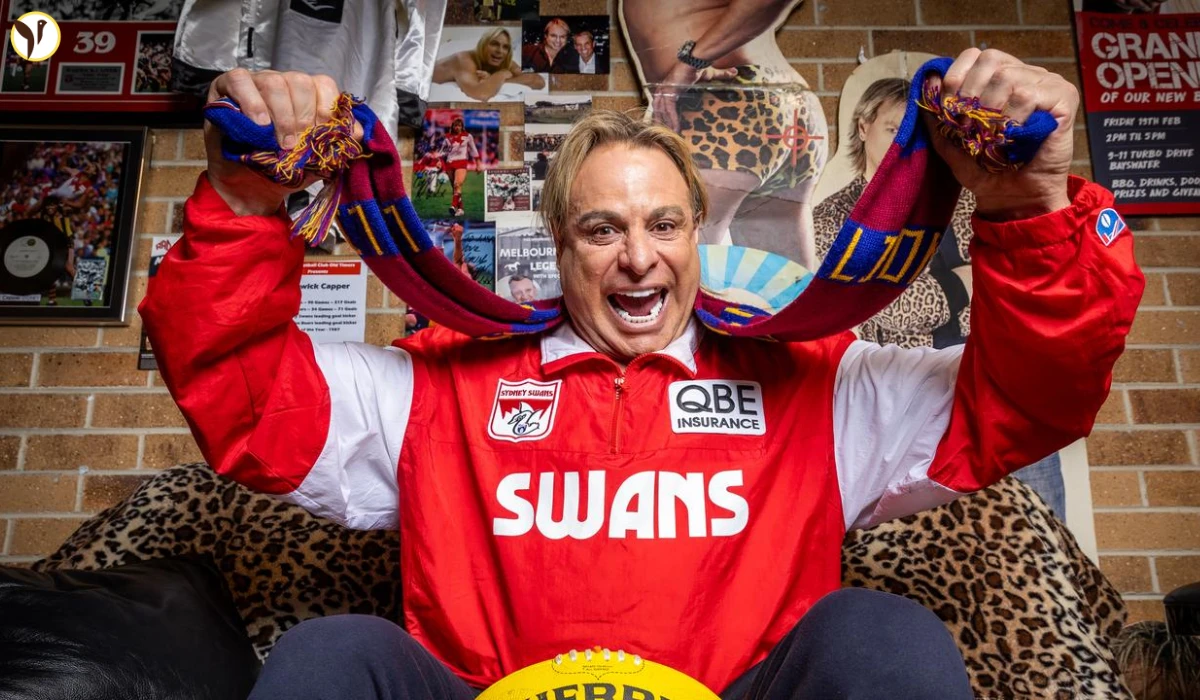Warwick Capper, a footy legend once known for his pink boots and high-flying marks, received an indefinite ban for five years from all AFL venues after some troubling reports emerged from the 2024 Grand Final. Staff at the MCG reported that Warwick was drunk, loud and took things too far by making inappropriate comments towards female employees. Allegedly, Warwick yelled “Wazza’s in the house” and made sexist jokes before being eventually escorted out by staff. The ban is total—no more access to the MCG, no stadium events, no access to cricket, and no access to AFL appearances until approx 2030. It is shocking, sad and honest; watching a hero fall.
What weighs harder on me, though, is not just the ban—it is Capper’s own words about his memory problems—he states that he has forgotten his son’s address and repeated the same stories to friends and family without even realising it—this is a sign of brain damage caused by his experiences in the AFL. He is going to meet with AFL about meeting with him regarding concussion and concussion testing. When a high profile player’s slipping memory becomes part of the narrative, you understand it is not just public misbehaviour. It might be a case of long-term injury finally catching up—and he may need help more than judgment.
On X (formerly Twitter), 7News Melbourne wrote:
“EXCLUSIVE: Footy showman Warwick Capper has been banned from all AFL venues for five years for his vile behaviour around female catering staff at the MCG.”
EXCLUSIVE: Footy showman Warwick Capper has been banned from all AFL venues for five years for his vile behaviour around female catering staff at the MCG. Capper was hit with the hefty sanction after a wild display at last year's Grand Final. @cleary_mitch @7AFL #7NEWS pic.twitter.com/pape4JnGWu
— 7NEWS Melbourne (@7NewsMelbourne) June 17, 2025
Meanwhile, an Instagram post from The Australian shared a clip of him talking about memory lapses, and the reaction was heavy. Followers wrote that seeing Capper struggle was heartbreaking—and it reminded them all that our sporting idols are human and fragile.
More Than a Scandal: A Cry for Help
Beneath the public pandemonium, this looks like a quiet call for something greater. Capper’s manager Tony Marks referred to the “class clown” side of Wazza—that’s always been part of who he is—but also said this time is a little different. Marks continued to say that the five-year full ban “stinks,” and that this could lead Capper to further isolation. That is a valid fear. When venues cut him off—no games, no media events, no speaking gigs—it's not just an income gap, that’s identity and belonging too. What if this separation takes him to a hole so deep he can’t pull himself out of it?
Concussion and memory are serious. If he’s actually forgetting things and living the same experiences over again, it’s not an isolated once off. The hope from here is that his AFL meeting ultimately turns into more than just a formality—that there is some proper support offered for him: brain scans, cognitive tests, mental health support. And maybe for the AFL, perhaps this is the opportunity for the AFL to every retired player regular brain tests and wellbeing check-ins—not only when things go sideways.
What Could Happen Next
-
AFL meeting: Could include scans, cognitive tests, concussion history review.
-
Support programs: Counseling, financial help, rehab pathways for ex-players.
-
Public opinion: Fans are torn—some angry at his actions, others urging empathy given his health.
-
Systemic change: If AFL takes action, Capper’s situation could set a new standard for player care.
Why This Story Matters
This is more than the fall of a footy star. It’s a wake-up call about what happens to players after they leave the field. Memory loss, potential brain injury, and sudden public disgrace paint a picture we don’t like—but we need to face. If Capper gets the right help, his story might shift the AFL’s attitude toward retired athletes. If not, it risks becoming a cautionary tale we’d rather ignore.









